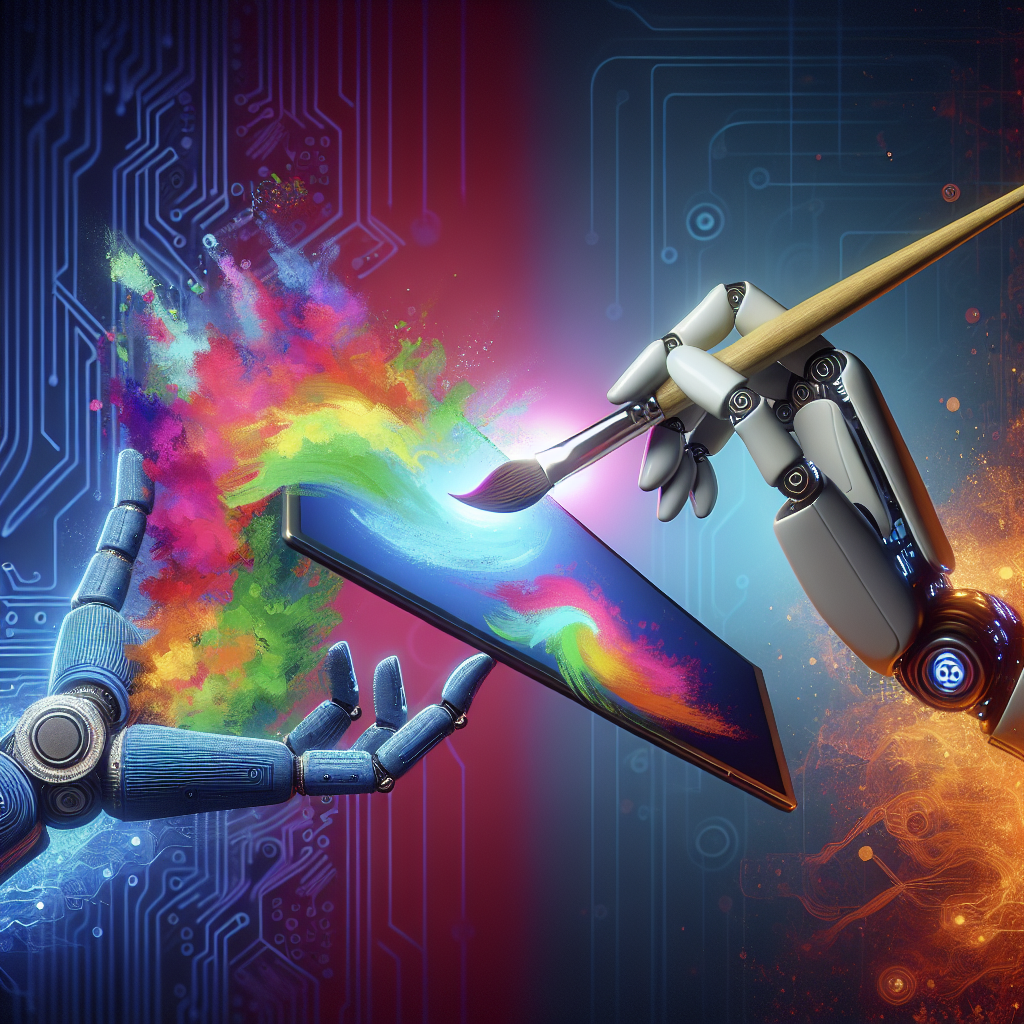Artificial Intelligence (AI) has had a significant impact on a wide range of industries, from healthcare to finance to transportation. One area that has seen a particularly large influence from AI is creative content creation. In this article, we will explore the ways in which AI is changing the landscape of creative content, and the implications for creators and consumers alike.
One of the most significant ways in which AI is impacting creative content is through the generation of new content. AI algorithms are now able to create music, art, and even literature that is indistinguishable from that created by human beings. This has the potential to revolutionize the creative industries, allowing for the rapid production of high-quality content at a fraction of the cost.
For example, companies like OpenAI have developed AI algorithms that can generate music, writing, and even visual art. These algorithms are trained on vast datasets of existing creative works, allowing them to learn the patterns and styles of different genres and artists. The results can be truly impressive, with AI-generated music that is difficult to distinguish from that created by human composers, and AI-generated writing that is engaging and well-crafted.
AI is also being used to analyze and improve existing creative content. For example, AI algorithms can analyze the sentiment and tone of written content, allowing creators to better understand how their work is being received by audiences. This can help creators to tailor their content to better meet the needs and preferences of their target audience.
In addition, AI is being used to personalize creative content for individual users. For example, streaming services like Netflix and Spotify use AI algorithms to recommend movies, TV shows, and music based on users’ viewing and listening habits. This can help to ensure that users are presented with content that is relevant and engaging to them, leading to a more satisfying user experience.
However, while AI has the potential to revolutionize the creative industries, it also raises a number of ethical and legal concerns. For example, there are questions about who owns the rights to AI-generated content. If an AI algorithm creates a piece of music or writing, does the algorithm itself hold the copyright, or does it belong to the company that developed the algorithm? These questions are still being debated, and it is likely that new regulations will need to be developed to address these issues.
There are also concerns about the impact of AI on human creativity. Some critics argue that AI-generated content lacks the emotional depth and nuance of content created by human beings. They worry that the widespread use of AI algorithms in creative industries could lead to a homogenization of content, with originality and innovation being stifled.
Despite these concerns, the impact of AI on creative content is likely to be profound. As AI algorithms continue to improve and become more sophisticated, we can expect to see even greater innovation and creativity in the creative industries. The key challenge will be to ensure that AI is used responsibly and ethically, in a way that benefits both creators and consumers.
FAQs
Q: Can AI really create content that is indistinguishable from that created by humans?
A: Yes, AI algorithms have made significant advances in generating music, art, and writing that is virtually indistinguishable from that created by human beings. These algorithms are trained on vast datasets of existing creative works, allowing them to learn the patterns and styles of different genres and artists.
Q: How is AI being used to analyze and improve existing creative content?
A: AI algorithms can analyze the sentiment and tone of written content, allowing creators to better understand how their work is being received by audiences. This can help creators to tailor their content to better meet the needs and preferences of their target audience.
Q: What are the ethical concerns surrounding AI-generated content?
A: There are questions about who owns the rights to AI-generated content, as well as concerns about the impact of AI on human creativity. Some critics worry that the widespread use of AI algorithms in creative industries could lead to a homogenization of content, with originality and innovation being stifled.
Q: How can we ensure that AI is used responsibly and ethically in the creative industries?
A: It will be important for companies and creators to develop guidelines and regulations for the use of AI in creative content creation. This may include ensuring that creators are credited for their work, and that AI-generated content is clearly labeled as such. It will also be important to continue to monitor and evaluate the impact of AI on human creativity, and to make adjustments as needed to ensure that creativity is not stifled.

